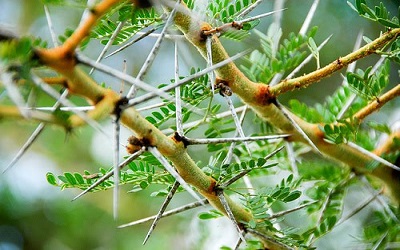PTE考生目前最大的问题之一就是练习题缺乏。除了有限的基本官方书(PLUS,Testbuilder, OG)之外,就没有题了。很多英语基础不是很扎实的同学很难找到练习材料。墨尔本文波雅思PTE培训学校专门为墨尔本,悉尼PTE考生准备了适合PTE听力阅读练习的科学60秒。各位PTE同学可以练习PTE听力中的summarise spoken text和PTE口语中的retell lecture,练习记笔记技巧和复述。废话少说,下面开始:
60秒科学:Plant-Thorns-Increase-When-Defense-Needed
听力内容:
60秒科学节目(SSS)是科学美国人网站的一套广播栏目,英文名称:Scientific American – 60 Second Science,节目内容以科学报道为主,节目仅一分钟的时间,主要对当今的科学技术新发展作以简明、通俗的介绍,对于科学的发展如何影响人们的生活环境、健康状况及科学技术,提供了大量简明易懂的阐释。
Plants thrive all over the planet, despite the fact that many animals love to snack on them. Various hypotheses account for all those plants. One is that predators kill enough plant-eating animals to give vegetation a chance. Another is that plants develop physical and chemical means to defend themselves.
Now researchers have teased out some of these factors in an East African savannah.
The impala ¨C an African antelope ¨C eats grasses and trees and is itself eaten by wild dogs and leopards. Impala often munch on a tree called the acacia. Some acacia have thorns, and some don’t.
The researchers found that the impala ¨C perhaps not surprisingly ¨C prefer thorn-free acacia. Also, the animals avoid woody areas where predators are more likely to hide.
And as a result, the thorn-free, vulnerable acacia are more plentiful in woody areas with plenty of predators. But the thorny acacia are more numerous on the open savannah, where they need to defend themselves. The study is in the journal Science.
The researchers say their findings show that both plant defenses and carnivorous predators help plants thrive. They also say that when humans influence ¨C in part by eliminating large predators ¨C we disrupt longstanding, complex systems. And that we should really try to better understand such systems, and our effects on them.
–Cynthia Graber





